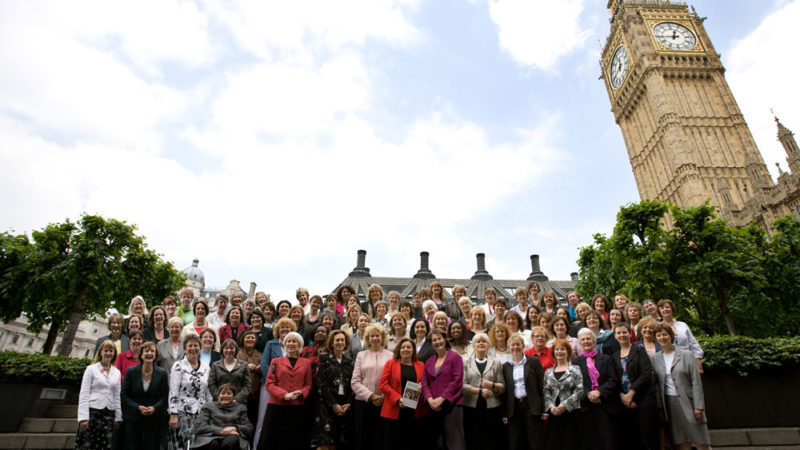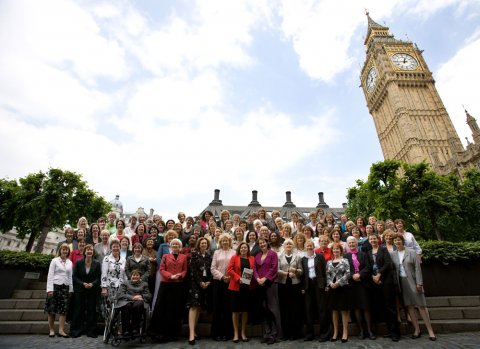
The result of the 1997 election was groundbreaking for Labour, not only because it broke the Wilderness years and we won a landslide victory, but also because of those dubbed ‘Blair’s Babes’.
120 women were elected MPs in the election, exactly double the number five years earlier. 101 of those women MPs were Labour Party politicians, the Conservatives contributed a mere thirteen. This was a massive triumph for the party and showed we were serious about representation of women in politics.
This result coincided with the much debated introduction of All Women Shortlists. Despite diverging opinions on whether this type of positive discrimination is good for women’s issues and breaking down tokenism, there is no denying the role of the shortlists in ensuring greater representation.

Women make up 51% of the population, we are not a subculture, we not a minority, we shouldn’t even need a ‘liberation’ movement, but we did then and we still do now. Seventeen years on, almost the same amount of time we were previously in Opposition, women are still not evenly represented at the top of politics.
All too often, when women are in positions of power, as political commentators, journalists or politicians themselves, they are pigeon holed into typical “women’s issue” roles.
Think of influential women that have held Cabinet positions, they have almost always had briefs involving social security, development or equalities with the odd communities or education role, and very rarely involved in banking, defence or economics.
Think back to the scenes following the 2008 Financial Crisis when the news channels were running clip after clip of men walking out of flashy buildings with their belongings in cardboard boxes having collected their P45s. And back in the studios we heard analysis from a predominantly male group of commentators and economists.
Despite the huge advances in women’s representation since 1997, women in politics are too often invited to comment on predicable women’s issues like childcare, education and health.
This isn’t to demean the work of women politicians in the aforementioned roles, it is thanks to a generation of Labour women that we’ve made such strides in areas like childcare, maternity rights and tackling violence against women, and their determination to force these issues to the top of the Parliamentary agenda is something we should be grateful for.
However, that doesn’t mean we can’t strive for more, and want women central to policy making in typically male dominated policy areas. We need further representation, on all topics, not just those briefs that fit within a traditional ‘cuddly’, female archetype involving caring and helping people.
When I started working for Vernon Coaker, one thing I noticed was the lack of women at defence industry events representing some of the biggest firms. It’s a male dominated industry, with none of the big firms operating with a female women CEO. That is why I’m so proud of the Shadow Defence Team; led by Coaker, it consists of five Shadow Ministers, three of whom are women.
Defence isn’t a man’s issue, just as childcare isn’t a women’s issue. They are issues for us all. It is crucial that women are represented, not just in every board room but in and across every industry, and that within the Labour Party we continue to excel with women represented across all Shadow departments so that policy works for the whole of the population.
We have a strong record here, something that is growing ever more obvious and was highlighted by Ed Miliband at a recent PMQs when he pointed to the exclusively male Tory front bench. The Tories clearly have a problem with women, as shown by Anne McIntosh’s recent deselection bringing the number of women Conservative MPs, who have either resigned or been given the boot, to five since 2010.
We aren’t going to win the next election just because we represent women more successfully than the Tories but we could definitely gain ground by having women proudly at the forefront of our campaigns, and talking regularly in the media on all issues.
Labour is the party that best serves women, both in policies and in representation, and we should be proud but Britain deserves even better and we can still do better.




More from LabourList
Government announce SEND reform in schools white paper
SPONSORED: ‘Industrial hemp and the challenge of turning Labour’s priorities into practice’
‘A day is a long time in politics, so we need ‘action this day’’